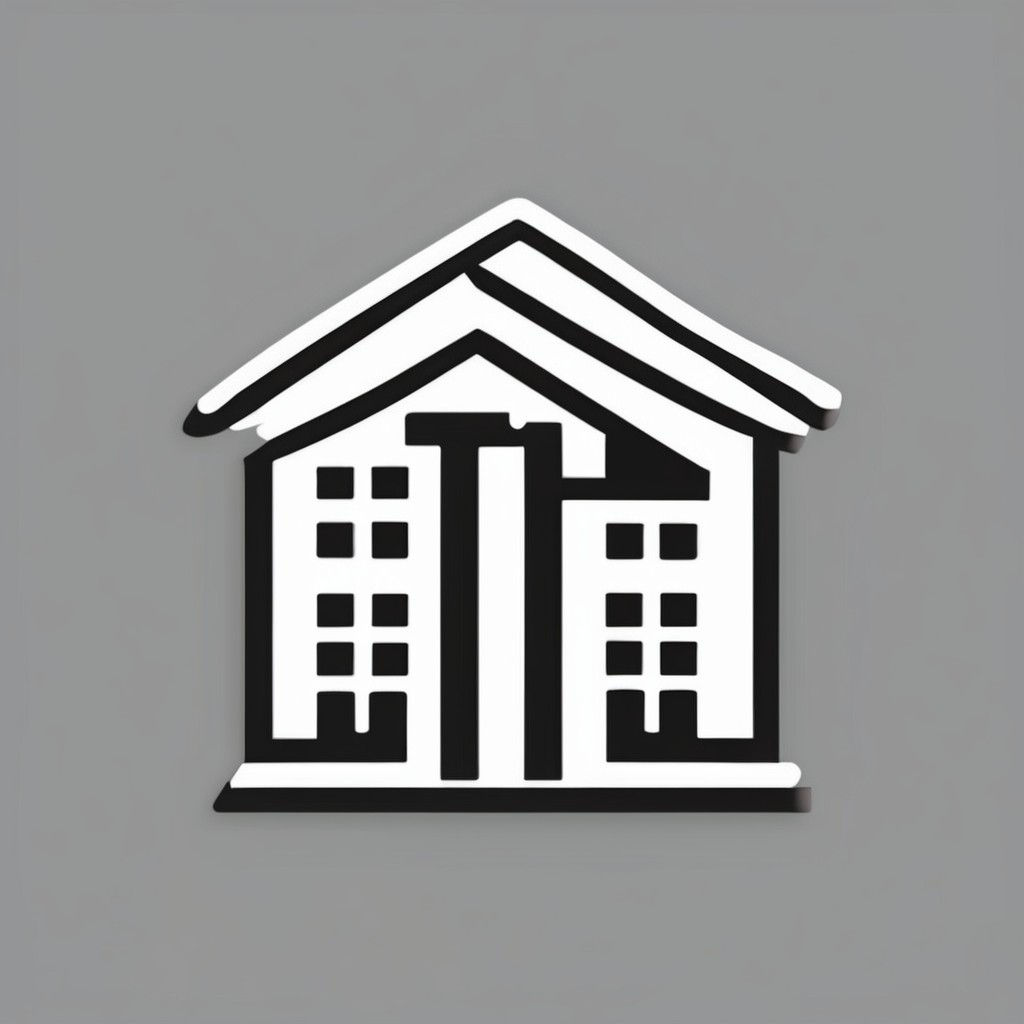Overview of Fixed-Rate and Variable-Rate Mortgages
Choosing the right mortgage type is crucial for any homeowner. Understanding the differences between fixed-rate and variable-rate mortgages can guide you to the best decision.
Fixed-Rate Mortgages
A fixed-rate mortgage is a type of loan where the interest rate remains the same for the entire term, offering predictability in monthly payments. This stability is often appealing to first-time buyers or those planning to stay long-term. The consistent payment structure helps in financial planning, ensuring no surprises due to market fluctuations.
A lire en complément : Exploring How New Digital Infrastructure Initiatives Impact UK Property Values
Variable-Rate Mortgages
In contrast, a variable-rate mortgage features an interest rate that can change, usually in relation to an index. This can result in fluctuating monthly payments. While this exposes the borrower to market risks, it also offers opportunities to take advantage of lower rates. Such flexibility can be suitable if you’re confident in handling potential increases or plan to sell the property soon.
Key Differences
- Interest Rate Stability: Fixed-rate remains consistent, whereas variable-rate can fluctuate.
- Payment Predictability: Fixed-rate provides stable payments; variable-rate can vary.
- Market Risk: Fixed-rate shields from market changes, while variable-rate embraces them.
Understanding these mortgage types enables a strategic choice tailored to your financial situation and future expectations.
Avez-vous vu cela : Effective Property Management Strategies for Landlords in UK’s Student-Focused Neighborhoods
Current UK Market Conditions Affecting Mortgage Choices
The UK mortgage market is experiencing significant fluctuations, primarily influenced by prevailing interest rates and broader economic factors. Currently, interest rates in the UK have seen a rise, following several adjustments by the Bank of England in response to inflationary pressures. This change directly affects fixed and variable rate mortgages, increasing monthly payments for many homeowners.
Amidst this backdrop, the economic landscape in the UK presents certain challenges. Economic growth still grapples with post-Brexit trade negotiations, and the residual economic impacts of the COVID-19 pandemic. These elements contribute to the volatility seen in mortgage rates. Economic stability often results in lower rates, which can entice homebuyers to lock in long-term deals. However, when economic conditions are uncertain, lenders might raise rates to mitigate risk.
As we look to the future, market trends suggest that interest rates will continue to play a crucial role in the housing sector. If economic growth remains sluggish, we might see a plateau or even a reduction in rates, spurring renewed interest in property investments. However, if inflation persists, rates may remain elevated, impacting affordability for prospective buyers. Understanding these market conditions is vital for informed mortgage decision-making.
Interest Rates and Their Impact on Decision-Making
Interest rates are a critical factor in the housing market, influencing both monthly payments and the overall cost of a mortgage. Historical data in the UK reveals that interest rates fluctuate significantly over time. For instance, in past decades, rates have swung from as high as 15% in the early 1990s to record lows below 1% more recently. These rate fluctuations directly impact decision-making for potential homeowners.
When interest rates are high, the monthly payments on a mortgage increase, making it more expensive and affecting affordability. Conversely, lower rates reduce these payments, making home purchases more attractive. However, it’s essential to conduct a thorough cost analysis before committing to a mortgage, as lower rates might not always result in the best overall financial decision.
To navigate rate fluctuations effectively, potential buyers should consider strategies such as fixed-rate mortgages that lock in a rate for a certain period or variable-rate mortgages for potential savings if rates decrease. Timing is also crucial; securing a rate when rates are predictably low can save significant amounts over the life of a mortgage. This strategic approach can be key to making informed decisions that align with personal financial goals.
Personal Financial Situations and Risk Tolerance
Understanding your financial stability is crucial when considering a mortgage. Before diving into the mortgage market, assessing your personal financial health helps you determine the extent of your borrowing capacity and whether you meet the mortgage eligibility criteria. Review your income, expenses, existing debts, and savings. This self-reflection lays the groundwork for evaluating how a mortgage fits into your financial picture.
Risk assessment plays a significant role in mortgage decision-making. Factors like your income stability, career prospects, and existing financial obligations can determine your risk tolerance. Consideration of these factors is vital as they can influence the type of mortgage suited for you. A person with a high risk tolerance may opt for adjustable-rate mortgages, while someone more risk-averse might prefer a fixed-rate mortgage, offering predictable monthly payments.
Equally important is understanding your personal goals and financial future. Are you planning on significant life changes such as starting a family or retiring soon? These plans can impact your mortgage choice by affecting your long-term financial responsibilities. Ultimately, aligning your mortgage choice with your personal aspirations ensures that your financial commitments today do not hinder your goals for the future. Thus, striking a balance between your current financial situation and desired lifestyle goals is paramount.
Pros and Cons of Fixed-Rate Mortgages
When considering a fixed-rate mortgage, it’s crucial to weigh both the advantages and disadvantages inherent in this option. A primary benefit is the stability and predictability of payments. Fixed-rate loans offer a consistent interest rate, leading to predictable monthly payments throughout the mortgage term. This predictability can provide homeowners with peace of mind, free from the anxiety of fluctuating interest rates.
However, one notable disadvantage is these mortgages might not be advantageous during periods of decreasing interest rates. If rates fall, those locked into a fixed-rate mortgage could be paying more than necessary compared to the market rate. This can result in missed opportunities for savings unless refinancing is pursued, which can incur additional costs and complexity.
Understanding who would benefit most from a fixed-rate mortgage is also essential. Ideal candidates are individuals planning to stay in their homes for a long-term period or those who value financial stability. For these borrowers, the assurance of a constant payment schedule outweighs potential savings from variable rates.
Thus, a comprehensive fixed-rate mortgage analysis involves carefully evaluating personal financial goals and market conditions to choose the best mortgage option. This ensures informed, confident decisions in purchasing real estate.
Pros and Cons of Variable-Rate Mortgages
Navigating the world of mortgages can be complex, but understanding the potential benefits and drawbacks of variable-rate mortgages is essential.
Variable-rate loans often offer enticing lower initial rates compared to fixed-rate options. This can be particularly appealing for borrowers looking to reduce monthly payment burdens at the outset. However, the trade-off comes with the risk of fluctuating interest rates. Over time, these rates may increase, impacting monthly payments significantly.
The variability in payments introduces an element of uncertainty. Borrowers must be prepared for possible financial adjustment should rates rise unexpectedly. This means that maintaining a flexible budget is crucial when opting for this type of mortgage. Meanwhile, the ability to capitalize on potential rate decreases can provide opportunities for savings.
When should you consider a variable-rate mortgage? It is advisable if you anticipate an increase in income or plan to pay off the mortgage before significant rate shifts occur. For example, those expecting career advancements or those who foresee a short-term stay in the property may benefit from the dynamic nature of variable-rate loans.
In summary, a careful variable-rate mortgage analysis is necessary, evaluating both personal financial circumstances and market trends to determine if the benefits outweigh the drawbacks for your specific situation.
Long-Term Cost Considerations
When assessing a mortgage, it’s crucial to evaluate the total payment assessment over the mortgage term. This involves understanding both the short and long-term financial implications. While initial payments might seem manageable, the overall mortgage costs can accumulate, impacting your financial health significantly over time.
To make informed decisions, financial projections play a key role. By predicting future expenses, such as property taxes and possible interest rate changes, you can better understand how your mortgage will affect your finances in the long run. This foresight allows for adjustments, ensuring the mortgage remains affordable throughout its term.
Understanding market forecasts also aids in this evaluation. Housing markets fluctuate, influencing both property values and interest rates. Conducting a comprehensive cost analysis in the context of these forecasts helps identify potential risks and rewards. For instance, a projected rise in local property values might justify higher initial mortgage costs, expecting future equity gains.
By giving these factors priority, borrowers can align their long-term financial goals with their current capabilities. Through thorough planning and adjustment, you ensure that the mortgage remains a positive financial decision, reflecting well on your economic future.
Tips for Making an Informed Decision
Choosing the right mortgage can be overwhelming, yet, asking key questions can substantially clarify your path. Begin by inquiring about the various mortgage types available. For example, “What are the pros and cons of a fixed-rate versus an adjustable-rate mortgage?” Directly addressing these questions improves your understanding, enabling more informed decision-making.
Consult with mortgage advisors or financial experts to gather tailored financial advice that considers your unique circumstances. Professionals can offer insights into the long-term implications of different mortgage decisions, helping you identify the most beneficial planning strategies.
Additionally, embrace modern tools at your disposal. A range of online resources and calculators can simulate mortgage scenarios, providing a tangible sense of how monthly payments fluctuate over time. These tools also help in comparing interest rates across various lenders, assisting you in envisioning the financial landscape ahead.
Furthermore, explore planning strategies that combine advice from both online and personal consultations. By doing so, you strengthen your decision-making foundation. Remember, when armed with the right knowledge and resources, you hold the power to make decisions that resonate with both your immediate and future financial goals.
Future Economic Forecasts and Mortgage Choices
Navigating the complex world of mortgages requires an understanding of the economic predictions shaping the market. Recent assessments reveal that these forecasts significantly influence mortgage choices. But how? They determine interest rates, which directly affect affordability. In the UK, the financial outlook is delicately balanced, with potential shifts in the economic environment having a ripple effect on long-term mortgage planning.
Economic predictions in the UK suggest a period of uncertainty driven by factors like inflation and post-Brexit trade dynamics. These variables could lead to fluctuating interest rates, impacting mortgage affordability. A key consideration is identifying trends in these predictions, which uncover potential risks and opportunities for future homeowners. This foresight can prove invaluable when selecting a mortgage.
When planning for the long term, mortgage implications become clear. Fixed-rate mortgages may provide stability amidst uncertain economic forecasts, while variable-rate options could benefit from falling interest rates. Understanding potential shifts in the UK’s economic landscape allows homeowners to tailor their mortgage choices accordingly. The role of future predictions is critical in aligning financial choices with anticipated economic developments, ensuring that borrowers are equipped to make informed decisions that safeguard their financial well-being.











